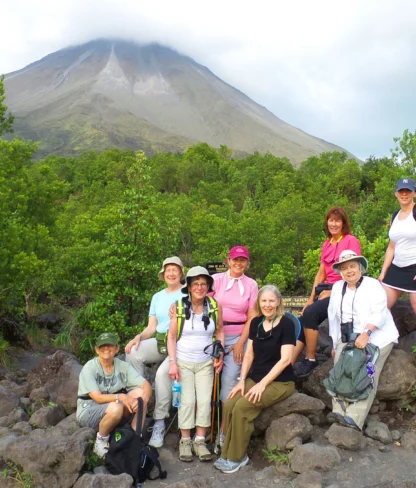"Beauty" Worldwide: How We Define It and How We Can Influence the Impact of It

Many years ago when I was in marketing at Women.com, I was part of an editorial feature we launched on the homepage which asked women “Are you a 10?” The firestorm that question ignited among our site visitors surprised all of us at the company and showed me that women have strong feelings when it comes to being identified as a number.
Across the world, the attributes associated with a woman’s beauty are both diverse and evolving. And as the position of women shifts economically, culturally and politically country-by-country, so has the way feminine beauty is defined. And there are recent indications that Western advertising and messaging influencing about “thin = more beautiful” are increasingly influencing the definition of beauty in other cultures. A fascinating project from 25 year old freelance Radio Journalist Esther Honig asked Photoshop aficionados in 27 different countries around the world to remake a woman’s image to be “beautiful”. Check it out…

Research also shows a strong link between self-perceptions about beauty and self confidence and well-being when it comes to women. The Dove Global Study on Women, Beauty and Well-Being, was conducted in 2004 and including interviews of 3,200 women in the U.S., Canada, Great Britain, Italy, France, Portugal, Netherlands, Brazil, Argentina and Japan. This survey was the genesis of the infamous Dove advertising “Campaign for Real Beauty” and highlighted the strong relationship between a woman’s self-image and positive well-being.
The survey revealed:
- Women across all age groups don’t see themselves as “beautiful.” By an overwhelming majority, women around the world are most comfortable using the words “natural” (31%) or “average” (29%) to describe their looks. Only 2% of women around the world chose “beautiful” to describe their looks, with “attractive” (9%), “feminine” (8%), “good-looking” (7%) and “cute”(7%). And four in ten women around the world strongly agreed that they feel uncomfortable describing themselves as beautiful.
- While women tend to have similar self ratings of “physical attractiveness” and “beauty” and despite mostly categorizing themselves as “average” on beauty and physical attractiveness, almost half of all women (47%) rate their body weight as “too high” – a trend that increases with age. This is particularly the case in the U.S. (60%), Great Britain (57%) and Canada (54%).
- Feelings about beauty/lack thereof impact overall life satisfaction. Importantly, almost half of all women (48%) strongly agree with the statement that: “When I feel less beautiful, I feel worse about myself in general.” Just 13% of all women say they are very satisfied with their beauty, 12% with their physical attractiveness, 17% with their facial attractiveness and 13% with their body weight and shape.
- Women are most happy with their health and with their relationships – with family, friends and romantic partners – and least satisfied with their physical attractiveness, body weight and shape, beauty and financial success.
- Beauty beliefs start early in life. 54% of survey respondents said they first became aware of the need to be physically attractive between ages 6 and 17.
The 2004 Dove study concludes “We can conclude from these results that, while their own beauty and physical appearance are not the primary drivers of women’s well-being, they are important players.”

Finally, a second Dove study conducted in 2006, “Beyond Stereotypes: Rebuilding the Foundation of Beauty Beliefs,” revealed that mothers can strongly influence their daughters’ self-image when it comes to “beauty”:
- While more than 90 percent of girls (ages 15 to 17) want to change at least one aspect of their physical appearance, with body weight ranking the highest and nearly a quarter would consider undergoing plastic surgery.
- Mothers, as well as girlfriends and peers, have the earliest and most powerful influence on a girl’s feelings about beauty and body image.
- 61 percent of all women and 69 percent of girls (15 to 17) feel that their mother has had a positive influence on their feelings about themselves and their beauty.
- And 51 percent of all women (46 percent of girls 15 to 17 and 53 percent of women 18 to 64) report that they wished their mother had talked to them more often about their beauty and body image when growing up.
So when it comes to defining beauty, let’s take control of the conversation and help promote positive well-being across the board.

by Annie Ellicott


